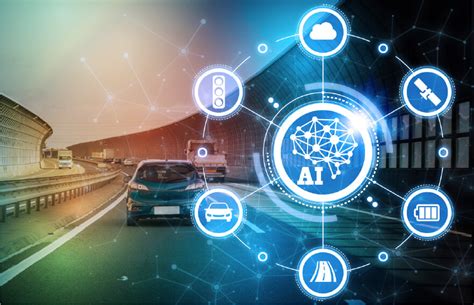The automotive industry is on the cusp of a revolution, driven by the integration of robotic technology, or robo tech, into various aspects of vehicle design, manufacturing, and functionality. This convergence of robotics and automotive engineering is set to transform the way we interact with vehicles, making them safer, more efficient, and environmentally friendly. As we delve into the world of robo tech in automotive, it becomes clear that this innovation has the potential to revolutionize the road as we know it.
The Rise of Robo Tech in Automotive
In recent years, the automotive industry has witnessed a significant surge in the adoption of robotic technology. This trend is driven by the need for increased efficiency, reduced production costs, and enhanced safety features. Robo tech is being used in various aspects of vehicle manufacturing, including assembly, welding, and inspection. Additionally, advancements in artificial intelligence (AI) and machine learning (ML) are enabling vehicles to become more autonomous, paving the way for a future where cars can drive themselves.

Key Applications of Robo Tech in Automotive
- Autonomous Vehicles: Robo tech is being used to develop autonomous vehicles that can navigate through complex environments without human intervention. This technology relies on a combination of sensors, GPS, and AI to make decisions in real-time.
- Advanced Driver-Assistance Systems (ADAS): Robo tech is being used to develop ADAS, which include features such as lane departure warning, adaptive cruise control, and automatic emergency braking.
- Vehicle Manufacturing: Robo tech is being used in vehicle manufacturing to improve efficiency, reduce costs, and enhance quality. Robots are being used for tasks such as welding, assembly, and inspection.
- Predictive Maintenance: Robo tech is being used to predict maintenance needs, reducing downtime and improving overall vehicle performance.
Benefits of Robo Tech in Automotive
The integration of robo tech in automotive has numerous benefits, including:
- Improved Safety: Robo tech can improve safety by reducing the risk of accidents caused by human error.
- Increased Efficiency: Robo tech can improve manufacturing efficiency, reducing production costs and improving overall vehicle quality.
- Enhanced Customer Experience: Robo tech can enhance the customer experience by providing features such as autonomous driving and advanced driver-assistance systems.
- Environmental Benefits: Robo tech can help reduce emissions and improve fuel efficiency, contributing to a more sustainable environment.

Challenges and Limitations of Robo Tech in Automotive
While robo tech has the potential to revolutionize the automotive industry, there are several challenges and limitations that need to be addressed, including:
- Cybersecurity: The increased use of connectivity and automation in vehicles raises concerns about cybersecurity.
- Regulatory Frameworks: The lack of clear regulatory frameworks for autonomous vehicles is a major challenge.
- Public Acceptance: Gaining public acceptance for autonomous vehicles is a significant challenge.
- Technical Complexity: The development of robo tech in automotive is a complex task, requiring significant investment in research and development.
Future of Robo Tech in Automotive
The future of robo tech in automotive is exciting and promising. As the technology continues to evolve, we can expect to see more autonomous vehicles on the road, improved safety features, and enhanced customer experiences. Additionally, the use of robo tech in automotive manufacturing is expected to increase, leading to improved efficiency and reduced production costs.

Conclusion
The integration of robo tech in automotive is transforming the industry in exciting ways. As we move forward, it is essential to address the challenges and limitations associated with this technology. With continued investment in research and development, we can expect to see a future where robo tech in automotive improves safety, efficiency, and the overall driving experience.






What is robo tech in automotive?
+Robo tech in automotive refers to the integration of robotic technology into various aspects of vehicle design, manufacturing, and functionality.
What are the benefits of robo tech in automotive?
+The benefits of robo tech in automotive include improved safety, increased efficiency, enhanced customer experience, and environmental benefits.
What are the challenges of robo tech in automotive?
+The challenges of robo tech in automotive include cybersecurity, regulatory frameworks, public acceptance, and technical complexity.
